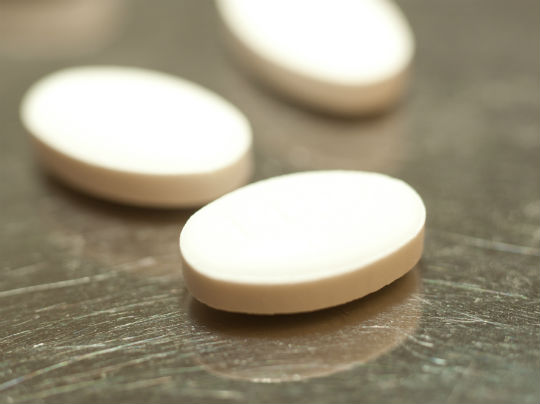-embed_d4c20575-8833-406f-b49c-1fbe0e552ed1.tmb-0874x492.jpg?sfvrsn=bc367969_3)
Non-small cell lung cancer (photo Dr Ed Uthman/Yale Rosen/Flickr)
Mutations in ‘Ras’ genes, which drive 25 per cent of human cancers by causing tumour cells to grow, multiply and spread, can also protect cancer cells from the immune system, finds a new study from the Francis Crick Institute and The Institute of Cancer Research, London.
The research, published in Immunity, shows that mutated Ras genes can suppress the immune system around tumours by increasing levels of a protein called ‘PD-L1’.
Small amounts of PD-L1 exist naturally in the body to prevent the immune system from attacking healthy cells, but cancer cells can exploit this to protect themselves.
More precise and effective treatments
Dr Matthew Coelho, first author of the paper from the Francis Crick Institute, said:
“Understanding how different mutations protect cancer cells from the immune system will help us to offer patients more precise and effective treatments.
“Antibodies that target PD-L1 proteins are currently used in the clinic, and they work very well in around a fifth of lung cancer patients. At the moment, doctors can measure PD-L1 levels to help determine which patients might respond best, but this only gives you half of the story.
“For cancer immunotherapies targeting PD-L1 to work, you need two things: Firstly, you need PD-L1 to be blocking immune attack in the patient’s tumour. Secondly, the immune system is only able to recognise and attack cancer cells that produce ‘antigens’, molecules that immune cells can bind to.
“Cancer antigens are currently difficult to test for clinically, so PD-L1 is now a major test for deciding if immunotherapy will work. It is therefore very important to understand what turns on PD-L1 in cancer.”
By revealing the causal link between Ras and PD-L1 levels, and the mechanisms behind it, the new study offers new possibilities for combination therapies using different drugs. As part of the study, mice with Ras mutant cancers were given compounds to counteract the effects of Ras signalling on PD-L1 expression. Their tumours were attacked by the immune system, slowing tumour growth.
Research at the ICR is underpinned by generous contributions from our supporters. Find out more about how you can contribute to our mission to make the discoveries to defeat cancer.
Fundamental role of Ras mutations
Professor Julian Downward, Group Leader at the Francis Crick Institute and Head of the Lung Cancer Group at the ICR, said:
“Our study highlights the fundamental role that Ras mutations play throughout the different stages of cancer. We already knew that they played a key role in starting around a quarter of all human cancers, causing cancer cells to grow, multiply and spread.
“We now know that they also help to protect the cancer cells from our immune systems, making them more difficult to treat.
“Understanding the mechanisms behind this will help us to develop better treatments in future, for example boosting immunotherapy approaches with drugs that disrupt cancer’s defences.”
